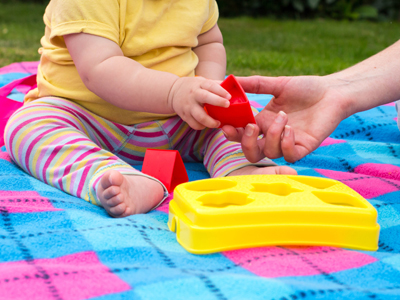
Local authorities are failing to meet the needs of care leavers who become parents, a think-tank has warned.
The Centre for Social Justice’s (CSJ) ‘Finding Their Feet’ report found that 22% of female care leavers become teenage parents but most local authorities did not have a policy in place to support them. Around 1 in 10 care leavers aged 16-21 have had a child taken into care, the report found.
The report is based on data obtained under the Freedom of Information Act from local authorities and evidence collected from care leavers, social care academics and voluntary sector groups. The CSJ said that the findings showed that failings in the care system were creating generations of disadvantage.
“When you take children into care you have a unique opportunity to break the cycle of disadvantage – too often this isn’t happening,” said CSJ policy director Alex Burghart.
“Many parts of the care system are in tatters and we desperately need to rescue it to protect our most vulnerable children,” he added.
Robust data should be collected on early parenthood and children of care leavers being taken into care, the report recommended, and Ofsted should inspect whether local authorities have any meaningful policies to tackle these issues.
Social work pressures
The CSJ is also calling for care services to increase the focus on building strong support networks for young people before they leave the care system and better recognise the potential for siblings to provide mutual support to one another during the leaving care process.
“Where the relationship is strong, siblings can be extremely important in providing mutual support in the process of leaving care and older siblings can take on a ‘quasi-parental’ role,” the report said.
The report raises concerns over the high numbers of care placements where siblings are separated, pointing to survey findings showing that 71% of looked-after-children with a sibling in care were separated from a brother or sister. There were cases where it could be better for siblings to be split up but feedback from experts and practitioners highlighted that separation “is too often the result of a lack of resources or deficits in social worker training,” the report said.
On social work-related factors that played some role in sibling separation it said: “Reluctance on the part of social workers to place siblings together is sometimes due to insufficient knowledge and confidence” and “The pressure of timescales can mean that there is a lack of time for social workers to make a proper assessment.”
The report recommended that the government should collect data on sibling separations and the reasons why in order to shine a light on poor practice. Extended contact time for separated siblings should be included in care plans, the report added.
The report called for the personal adviser role, wherever possible, to be assigned to someone who a young person has a strong relationship with rather than a new professional. Local authorities should also work with ‘good’ and ‘outstanding’ residential children’s homes to develop their own versions of staying put, and they should also provide semi-independent accommodation for care leavers to ease the transition out of care, it added.


 A trauma-informed approach to social work: practice tips
A trauma-informed approach to social work: practice tips  Problem gambling: how to recognise the warning signs
Problem gambling: how to recognise the warning signs 




 Find out how to develop your emotional resilience with our free downloadable guide
Find out how to develop your emotional resilience with our free downloadable guide  Develop your social work career with Community Care’s Careers and Training Guide
Develop your social work career with Community Care’s Careers and Training Guide  ‘Dear Sajid Javid: please end the inappropriate detention of autistic people and those with learning disabilities’
‘Dear Sajid Javid: please end the inappropriate detention of autistic people and those with learning disabilities’ Ofsted calls for power to scrutinise children’s home groups
Ofsted calls for power to scrutinise children’s home groups Seven in eight commissioners paying below ‘minimum rate for home care’
Seven in eight commissioners paying below ‘minimum rate for home care’
 Facebook
Facebook X
X LinkedIn
LinkedIn Instagram
Instagram
Comments are closed.